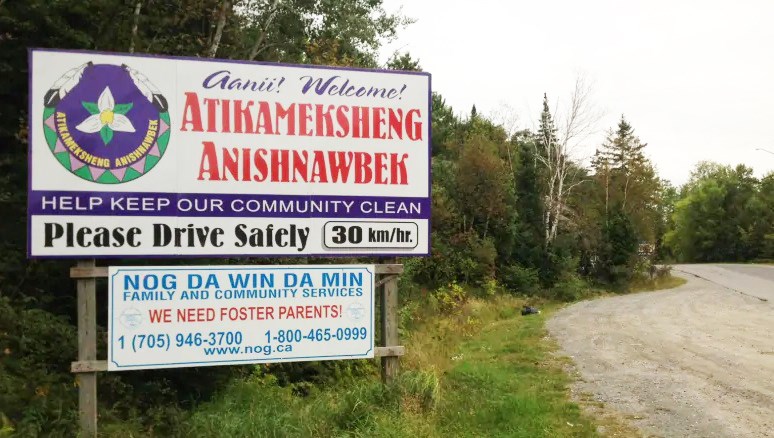On February 22, the Atikameksheng Anishnawbek Gimaa and Council declared a State of Emergency for the mental health and addictions crisis the community is currently experiencing.
On March 12, a press briefing and release announced the First Nation’s critical need for increased services and resources to address these issues.
In addition to the existing issues with underfunded services and programs, the impacts of the pandemic have been felt deeply in the community.
“Over the past year, we have seen an increase in opioid related incidents and deaths, alcohol related incidences, homelessness and not to mention the isolation caused by the COVID-19 pandemic has put our members at risk for their health and well-being,” said Carmen Wabegijig-Nootchtai, Director of Health & Community Wellness, in a statement released by Atikameksheng Anishnawbek.
She also notes the toll it is taking on the health and social services workers and the community in general.
The State of Emergency is under the purview of the newly formed Emergency Response Team, led by Wabegijig-Nootchtai.
Currently, the team is engaged in ongoing meetings with federal and provincial government officials, Political Tribal Organizations (PTO’s), local and regional partners, and Anishnawbek Nation Leaders to address these inadequacies in health and social funding and lack of support. “Expressing the need to refine those plans and connect with all of the individuals who would be able to assist us in delivering and making those plans,” said Wabegijig-Nootchtai. “Turning them into action so that we can see something in our community.”
Gimaa Craig Nootchtai added, “It's not just our partners that we're relying on, we're asking our own community members or committees to be involved in this as well. We know that if we can come together as a community and work towards a solution, with these additional resources, we know that we have a better chance of reaching more people and getting them on the path to recovery. It's a very community grassroots approach that we're taking as well.”
But the obstacles are many, said Nootchtai. “We have done our best to address the issues with the funding that is made available, but the fact is that the restrictions placed on the use of the funding, and the amount of funding in general, is not enough to meet the needs of our members,” he said.
“We need more resources to implement land-based healing programs that are offered in our community that are focused on restoring and preserving our language, our culture, and our traditions, which would work in tandem with the western based treatment options. We also need the resources to build the infrastructure to deliver those land-based programs.”
You can find more information about the community strategy at www.atikamekshenganishnawbek.ca.
